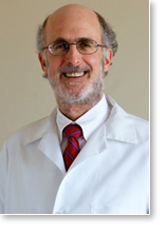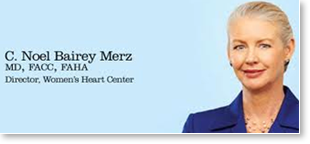A new report from the American Heart Association published on April 22 concluded that the Transcendental Meditation (TM) technique lowers blood pressure and recommends that the TM technique may be considered in clinical practice for the prevention and treatment of hypertension.
The purpose of the report, entitled “Beyond Medications and Diet Alternative Approaches to Lowering Blood Pressure: A Scientific Statement From the American Heart Association,” is to inform physicians which alternative approaches to lowering blood pressure (BP) have been shown by research to be effective.
After considering meta-analyses and the latest clinical trials on different types of meditation, the report stated that while the Transcendental Meditation technique is recommended to lower BP, there is not enough scientific evidence to recommend other meditation or relaxation techniques.
The AHA’s recent scientific statement* reports:
“Because of many negative studies or mixed results and a paucity of available trials, all other meditation techniques (including MBSR) received a ‘Class III, no benefit, Level of Evidence C’ recommendation. Thus, other meditation techniques are not recommended in clinical practice to lower BP at this time.”
The AHA scientific statement also reported that:
• Lower blood pressure through Transcendental Meditation practice is associated with substantially reduced rates of death, heart attack and stroke.
• Alternative treatments that include the Transcendental Meditation technique are recommended for consideration in treatment plans for all individuals with blood pressure > 120/80 mm Hg.
“This is an important breakthrough in the evolution of medical practice, since it is the first time that the Transcendental Meditation technique has been recognized and recommended for consideration by a national medical organization that provides professional practice guidelines to physicians, health care payers, and policymakers,” said Robert Schneider, MD, FACC, director of the Institute for Natural Medicine and Prevention who has been the principal investigator for several research studies on the Transcendental Meditation technique and cardiovascular disease. “This type of guideline statement has been what health insurance companies have been requesting for many years.”
The authors of the report assessed three categories of alternative approaches: behavioral therapies such as meditation, non-invasive procedures or devices, and exercise-based regimens. The report did not review diets or dietary supplements.
Part of the impetus for this statement from the AHA came from the patients themselves, who are sometimes reluctant to take medication.
“A common request from patients is, ‘I don’t like to take medications, what can I do to lower my blood pressure?’ said Robert Brook, M.D., chair of the expert panel that authored the report. “We wanted to provide some direction.”
Meta-analyses referenced in the report found that Transcendental Meditation practice lowers blood pressure on average 5 mmHg systolic and 3 mmHg diastolic. Although by some accounts modest, Dr. Schneider pointed out that for millions of people with high blood pressure, this reduction may help to bring them into a more normal range or prevent the need for hypertension medication with attendant side effects and costs. Clinical trials have shown that lower blood pressure through Transcendental Meditation practice is associated with significantly lower rates of death, heart attack, and stroke.
“We are gratified that our research demonstrating the efficacy of TM on blood pressure is being recognized and hope that this consensus will result in its wider use in clinical practice,” said C. Noel Bairey Merz, professor of medicine at Cedars Sinai Medical Center and principal investigator for an NIH-sponsored clinical trial on Transcendental Meditation and cardiovascular health.
The American Heart Association report also recognized that Transcendental Meditation is generally considered safe and without harmful side effects. As an additional advantage, the statement noted that many of the reviewed alternative therapies, such as meditation, may provide a range of health or psychological benefits beyond BP lowering or cardiovascular risk reduction.
______________________________________________
*Brook RD et al., Beyond Medications and Diet: Alternative Approaches to Lowering Blood Pressure. A Scientific Statement from the American Heart Association. Hypertension, 61:00, April 2013.






